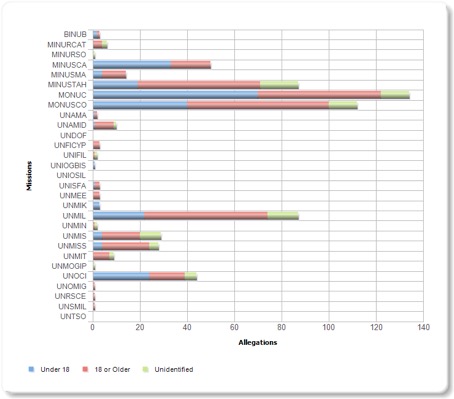The “Pathologies” of UN Peacekeepers: Sexual Exploitation and Abuse Allegations of Blue Helmets
The UN’s “legitimacy” is widely recognized to be the main source of its authority and power in world politics. To be powerful, it should be seen to serve some legitimate purpose- like preserving international peace and security, promoting human rights. More importantly, it must be perceived to serve this purpose in an impartial, just, neutral and technocratic way, by using impersonal rules and laws.1 As yet, there is ample evidence of harms caused by UN peacekeepers to people it is to serve. The UN Peacekeepers has recently found itself accused of various kinds of harms, including exploiting weak and vulnerable people. Peacekeepers have repeatedly been accused of criminal activity and human rights violations, including trafficking, child abuse, and rape. In many of these cases, rather than accepting responsibility, the UN has relied on the law of immunity as a shield against accountability.
The UN peacekeepers are legally immune from criminal investigation by the UN through UN Charter, the Convention on the Privileges and Immunities of the United Nations, and Status of Forces Agreements (SOFAs). According to Status of Forces Agreement (SOFA), if the host government argues that peacekeeping personnel committed a crime, they will be subject to the sole jurisdiction of their own states. These laws grant absolute immunity to peacekeepers for crimes committed abroad. In fact, these immunities are codified as being necessary for the “independent exercise of peacekeepers functions” in connection with the organization. Furthermore, the UN has no standing army available; thus these immunities facilitate the voluntary personnel contributions of member states for the UN operations around the world. However, paradoxically, these immunities challenge the very legitimacy of UN peacekeeping as producing immunity from criminal accountability. In other words, the laws governing the UN peacekeepers seems to produce undesirable, dysfunctional, and even self-defeating outcomes- the “pathologies of UN peacekeepers”.2
The UN Peacekeeping operations have recently been highly criticized from accountability with respect to criminal behavior by Peacekeepers. Increasing reports of human rights organizations on criminal behavior- especially sexual abuse of peacekeepers in the Africa missions- have once again increased uneasiness and awareness of the problem of UN immunity from accountability. The problem of sexual abuses committed by peacekeepers has been acknowledged by the UN and other international organizations since 1995. Yet, it has become an international issue in late 2001 after the UNHCR and Save the Children conducted a joint study on sexual exploitation of refugee communities in West Africa. In 2005, the publication of “Zeid Report” was a turning point in terms of being the first comprehensive analysis of the problem. In that report, then Secretary-General Kofi Annan clearly underlined and accepted the “responsibility” of UN Peacekeeping forces during their mission on Democratic Republic of Congo.
Since the publication of the Zeid Report in 2005, the UN has adopted a series of documents and some initiatives have been taken including the establishment of a Conduct and Discipline Unit (CDU) at UN Headquarters in 2005 to provide oversight on conduct and discipline issues in peacekeeping operations. Yet, there is still little clarity on the outcomes of the procedures set up by the UN and new allegations of sexual misconduct surfaced in the Africa region-regarding the Central African Mission(MINUSC) with the work of NGOs in the last couple of years. The UN statistics in the following two tables illustrates sexual exploitation and abuse allegations involving minors per missions and per years.
Many scholars and NGOs argue that the tables only record the surface of the iceberg regarding the misconducts by UN Peacekeeping operations. Many untold stories are swept under the carpet.
The law of immunity has increasingly become a barrier towards the advancement of “human rights” in which the UN is to serve in its Charter. The UN has established a system of laws in which the organization and its agents continue to enjoy immunity for crimes committed abroad. Although states have lost their immunity from any accountability for their human rights violations in changing world politics, the UN personnel continues to enjoy irresponsibility and immunity from accountability, most notably the UN peacekeepers. The evolution of legalization in human rights field has not, yet, necessarily ends up-or completed- with a genuine “progess” in terms of a more humane global governance through the United Nations. This legal paradox, if not contradiction, of international human rights law once again increases the importance of accountability question as being one of the main sources of UN’s “illegitimacy” in world politics. There is increasing pressure from civil society organizations to make UN more accountable to the people it is to serve. This denotes to a deepening legitimacy crises of the UN through peacekeeping operations.
Notes

This article is published under a Creative Commons Attribution-NonCommercial 4.0 International licence.


